#Katharine Blake
Text
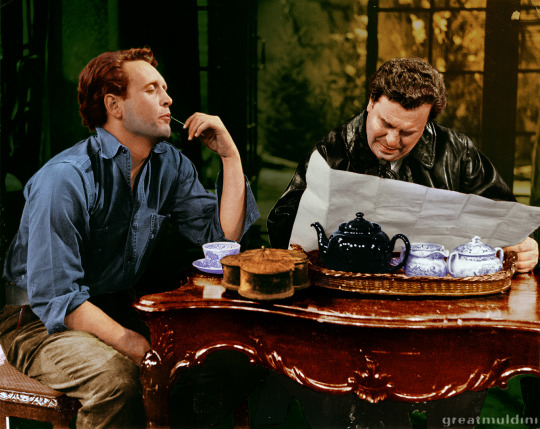
The Iron Harp
We’re all in prison together, Johnny, one way or the other.
Act 1
Outwardly, Joseph O'Conor's play is a simple tale of love and loss in times of war: set in rural Ireland in early April of 1920, the action takes place on the property of an English industrialist whose mansion has been taken over by a contingent of IRA volunteers. Their leader is Michael O'Riordan, a gifted poet-musician in civilian life and conveniently the peace-time manager of the Englishman's estate. Michael has recently been wounded in action; now blind as a result he is no longer on active duty but still responsible for an English prisoner of war. Being a man of his word, Captain John Tregarthen has made no attempt to escape, earning Michael's trust and eventually his friendship. He also earns the friendship and love of Michael’s cousin Molly Kinsella, with whom he spends long days roaming the extensive grounds of his idyllic prison. Dreaming of a future life together, the lovers are oblivious to the feelings of their “best friend” – who ends up sacrificing his love for Molly in what he hopes will be a lasting gesture of selflessness only to find that Fate intervenes, with devastating consequences for them all.
Completing the quartet of characters is the dark and “indistinct” figure of IRA commander Sean Kelly, a dark and "indistinct" figure who emerges from the shadows to immediately assert his authority not only in military matters but - crucially, and disturbingly - in those of the heart as well. Specifically, it is the heart of Michael O’Riordan that Kelly claims to know better than O’Riordan himself. As a flesh-and-blood character Kelly is difficult to pin down: cold and calculating by his own admission, he expresses admiration for Michael's hot-blooded fighting spirit. Michael's own startled response to Kelly entering "like Nemesis himself" is ambiguous at best, and even his description of Kelly as a “good friend” comes on the back of a warning to Johnny that "he won't like you."
When Kelly tells Michael that he has never been wrong and does not know what it means to feel regret, the sense of foreboding is inescapable, yet Michael never seems to give in to the negativity emanating from his old wartime comrade who admonishes him to see his friends “as they really are” and not as “you want to see them.” Ironically, Michael refuses to see an enemy in John Tregarthen, but he is equally stubborn in applying the same criteria of honour, loyalty, and friendship to Sean Kelly, who seems troubled by this flaw in Michael’s character: "you love people too much."
Michael's emotional warmth stands in stark contrast to Kelly's impersonation of infallibility - which Michael seems to accept as a token of his friend's unassailable integrity. He continues to defer to Kelly's judgment when a messenger arrives with bad news from the front: three IRA fighters have been killed in skirmishes with British forces, and reprisals must be carried out. Twisting the metaphorical knife in the very real emotional wound, Kelly as the commanding officer nominates blind Michael to be the impartial instrument of God's justice. Forced to select three victims for execution, Michael all but collapses when one of the chosen names is that of Captain John Tregarthen.
Act 2
After he has persuaded Johnny to flee the country and reunite with Molly back in England, Michael is left alone to guard the now empty house. Blind and unable to defend himself, Michael is powerless against two marauding Black & Tans who break into the property and proceed to taunt and abuse the solitary occupant. It does not take them long to realize their victim is an IRA member rather than a civilian enjoying certain protections. Further violence is prevented only by the surprise return of Captain Tregarthen, armed and in uniform, who holds the attacker at gunpoint until Kelly and his entourage arrive to take the men away. Where any other human being would have expressed relief or gratitude at the discovery that the life of his friend has been saved, Kelly’s reaction is characteristically impassive, betraying, if anything, a degree of irritation at the unforeseen complication that has shown the condemned prisoner – the enemy – to be capable of compassion and self-sacrifice in saving the life of his friend. Human qualities that Kelly explicitly claims not to possess. As if to prove the point, he responds with the formal announcement of Tregarthen’s impending execution.
The order is to be carried out within three days, enough time for Kelly to travel to headquarters - and return with a firing squad. But first he must interrogate the captured Tans. While Kelly is thus occupied, Molly manages to convince the love of her life to take her with him. Johnny only agrees to the plan on the promise that Michael will convince Kelly to rescind the execution. If Johnny and Molly can make their way to Belfast on the early morning goods train, and from there to England, all will be well. Michael knows how to distract the guards, and Molly can bribe the train driver to let Johnny jump aboard. Three loud whistles will give the all-clear. With hopes of future happiness rekindled, Molly and Johnny each rush off to their respective tasks, and Michael is left alone with three empty glasses that he cannot see – a detail that does not escape Kelly’s notice as he re-joins Michael to formally accept his plea for clemency. Which he says he will duly submit to "the general," but in his estimation the chances of success are slim. "For God's sake, don't build up hope," he tells Michael before agonizing – to himself – over how to soften the blow for Michael: by bringing the execution forward and keeping it secret, he is certain he can spare Michael the pain and the guilt of having to witness the event.
Act 3
In the pre-dawn hours of the following day, Michael and Johnny are wide awake and waiting for the sentries to change and the train to whistle. Thinking the house empty and their enemies far away, they pass the time in a dreamlike state of high anxiety, reciting heroic poems and melancholy songs in whispering voices, so as not to miss the stroke of six to mark the end of their nightmare and the beginning of a new life – only to see Kelly standing in the door, with orders for Johnny to be executed at dawn, 24 hours earlier than they were told originally. Michael's world is falling apart, he pleads with Kelly, he begs him to show mercy, but an almost equally distressed Kelly reminds him that "I have never promised you hope." Johnny declines the comfort of a priest or minister and is led away to meet his fate offstage while, also offstage, Molly will be waiting in vain for the love of her life to board a train that will never arrive.
Left on stage for their final confrontation are Michael and his Nemesis, both knowing full well that nothing they can do or say will change what Kelly might term the preordained outcome of their efforts. To Michael's accusation of "trickery" (by which he means Kelly's surprise return before the agreed time), Kelly offers no subterfuge, no defence, and no evasion. Instead, he says, Michael’s agony is self-inflicted: it was, in fact, his own stubborn insistence on hoping against hope that has now led to anguish and pain. The only way for Michael to end all suffering, Kelly explains, is to give up hope. Unless he manages to see past the private pain of the moment and becomes a distant observer, Michael will forever be "tortured by hope."
Here Kelly is borrowing from the Conte Cruel tradition made famous by Edgar Allan Poe but named after a collection of short stories by the French symbolist writer Auguste Villiers de l'Isle-Adam. A useful definition of the genre is that it concerns "any story whose conclusion exploits the cruel aspects of the irony of fate." Not only does Kelly borrow the concept, and the title from Villiers' tale, The Torture of Hope, he even recounts the plot to underline his point:a hapless victim of the Inquisition escapes his prison cell only to stumble into the arms of the Chief Inquisitor. The lesson for Michael is that, like the victim, he keeps on hoping for release only to suffer defeat over and over again. There are no similarities, however, between himself and the sadistic Inquisitor, Kelly says: his mission is to ease Michael'ssuffering, not to prolong it.
We are given no reason to doubt Kelly’s sincerity, but neither can we reconcile the apparent contradiction between his declared intention and putting Michael’s best friend before a firing squad. If Kelly wants to end all suffering, as he says, surely, a good start would be to save Captain Tregarthen’s life? It is the argument that Michael himself is trying to make, by reminding Kelly of his god-like powers. Michael’s understanding of those powers differs fundamentally from Kelly’s own. Michael’s life-affirming principle of hope and Kelly’s seductive all-consuming fatalism are the two opposing philosophies that take centre stage in the final scene – while John Tregarthen dies a largely symbolic death offstage.
Johnny’s death is symbolic in that it is not the tragedy at the heart of the play. Michael O’Riordon is the conventional male protagonist whose existential crisis we are witnessing; Michael is unable to prevent the execution of his best friend; and to make that very point, his best friend must die. Michael’s blindness contributes to this failure in the course of the play but read as a metaphor it turns Michael into “one of us.” His blindness leaves him vulnerable to attack and it echoes our own sense of powerlessness in the face of an overwhelmingly hostile universe. The reverse, however, is also true: being blind, and being a poet, puts Michael in the illustrious company of the Blind Bard, an archetype of Western literature since at least the (mythical) time of Homer: the blind singer/seer whose “inner vision” surpasses that of sighted humanity. His Irish equivalent – and explicit model for Michael - is the (dwarf) Harper of Finn, whose iron-stringed instrument has the power to move its audience to tears. Michael O’Riordon is both vulnerable and endowed with the superpower of emotional insight – fundamentally human qualities that Kelly admires in Michael, and which he admits he does not possess.
Kelly is an abstract concept in human form; even while he is evidently the cause of human suffering, in his denial he appears to be channelling the sadistic Inquisitor. The apparent contradiction is of our own making, though: Kelly is Cruel Fate personified. He represents that which we like to imagine as the source of all our woes - the betrayals, the injustices, the disappointments which inevitably end in what we define as tragedy and what to the rest of the universe, that hostile universe, is of no consequence whatsoever. If we substitute “hostile” with “indifferent,” then Kelly becomes the antithesis to Michael’s humanity – his indifference is as inhuman as the infinite, indifferent universe. Conversely, Michael is not concerned with an infinite universe; his frame of reference is on a human scale, and very finite. Finite. When Kelly challenges Michael to take his place and adopt his abstract, God-like perspective on life, death, and the universe, Michael does reject the responsibility – but also the indifference required for the position. If the promise of a pain-free existence did not convince Michael to abandon hope, Kelly's failure to shame him into admitting defeat is a testament, at the very least, to human perseverance: we will forever be prolonging the agony to delay the inevitable. (1/4)
#Patrick McGoohan#Patrick Macnee#Katharine Blake#Douglas Campbell#played the four characters in#The Iron Harp#on Canadian TV in 1959#the plan was to explain EVERYTHING in one brilliant post#well the good news is there will be four posts now wahoo#but I'm already posting out of order because I can't decide on the illustration to go with the historical background#as for the play itself#if you have made it this far and you still care#whether the characters are consistent with the general message the author is trying to convey#your powers of perseverance are truly heroic#the problem I think is that the story does not always align with the metaphor#which I still maintain is the human condition#we cannot ever beat death but we carry on regardless#is it just me or does that cryptic cry from#Free for All#obey me and be free#sound like something the evil Inquisitor or Sean Kelly would say#For Fleetstreetpauline#miss you always
14 notes
·
View notes
Text



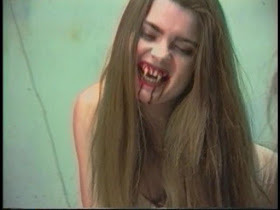

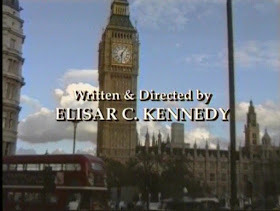
Demonsoul (1995) dir. Elisar C. Kennedy
#demonsoul#miranda sex garden#katharine blake#hepzibah sessa#i just think that. bands should play vampires in their friend's obscure movies again 🚶♀️
29 notes
·
View notes
Photo
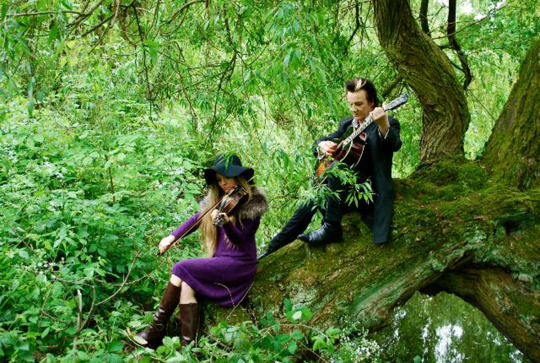
Nick Marsh and Katharine Blake
3 notes
·
View notes
Text

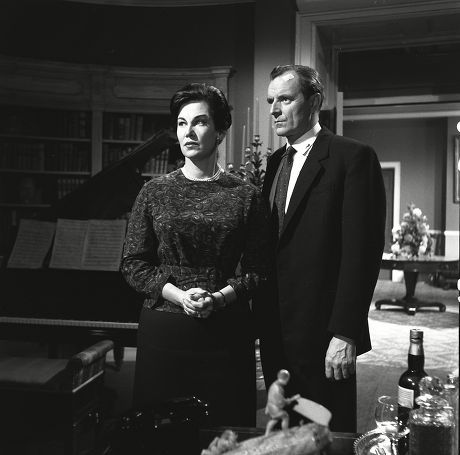
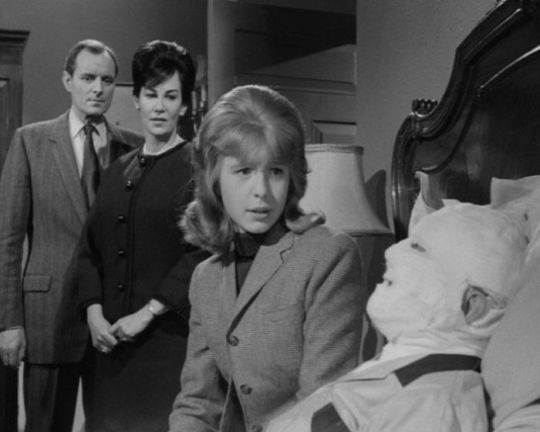

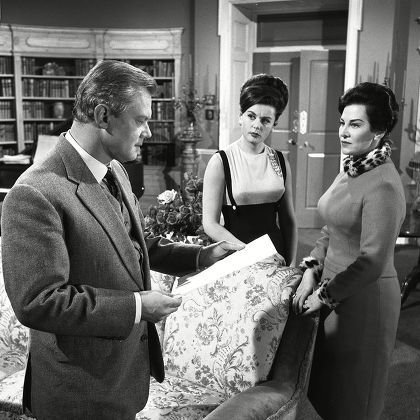

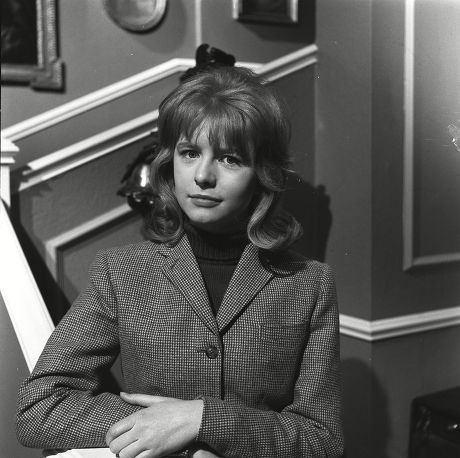

The Saint: The Invisible Millionaire (2.22, ITC, 1964)
"I'm afraid we weren't expecting you."
"Am I ever expected in this house? I see you've got another new car."
"Yes."
"Lovely to be rich, isn't it?"
"I like it."
#the saint#the invisible millionaire#1964#itc#leslie charteris#kenneth r. hayles#jeremy summers#roger moore#katharine blake#michael goodliffe#nigel stock#eunice gayson#jane asher#basil dignam#mark eden#charles morgan#john gabriel#ian ainsley#frank atkinson#peter lawrence#michael mckevitt#a pretty strong episode with a few interesting notes. i shan't spoil the (really pretty obvious) twist‚ but i doubt it would have kept a#contemporary audience guessing much; for one thing‚ this episode bears a striking similarity to The Avengers episode Death of a Great Dane#which had aired in late 62 (one of the few early episodes to be essentially remade‚ the basic plot was used again in 67 for The £50000#Breakfast). i haven't read Charteris' short story so I can't comment on which direction the cribbing went in. unusually this episode#features the onscreen murder of a woman; only 2.5 The Elusive Ellshaw springs to mind as having featured such a scene previously (and even#more curiously‚ the aforementioned £50000 Breakfast would be one of the only Avengers episodes to depict a woman's death onscreen)#a strong guest cast including old fave of mine Nigel Stock as a delightfully pathetic conman and future Callan costar Goodliffe as a#mysterious doctor. my goodwill towards a decent script and a lively episode was dashed in the final minutes‚ as Simon quite literally#threatens to punch a woman. not even bothering to hide that misogyny anymore‚ huh‚ Mr Saint?
10 notes
·
View notes
Photo
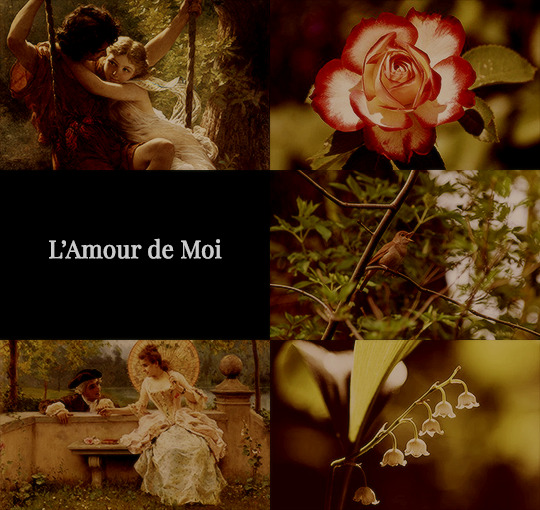

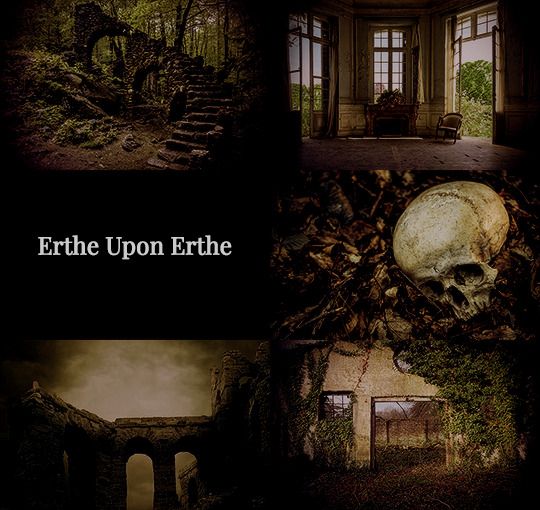
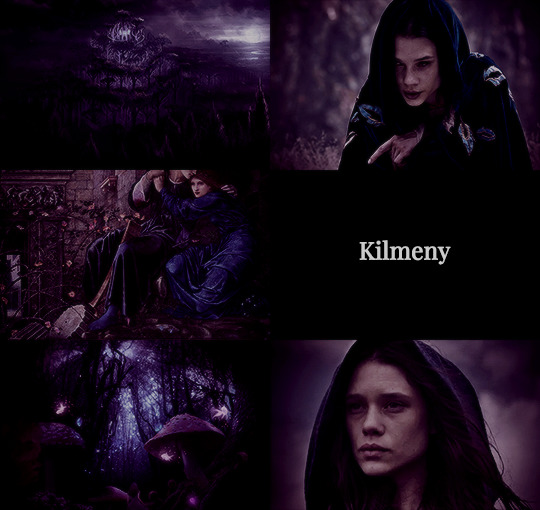
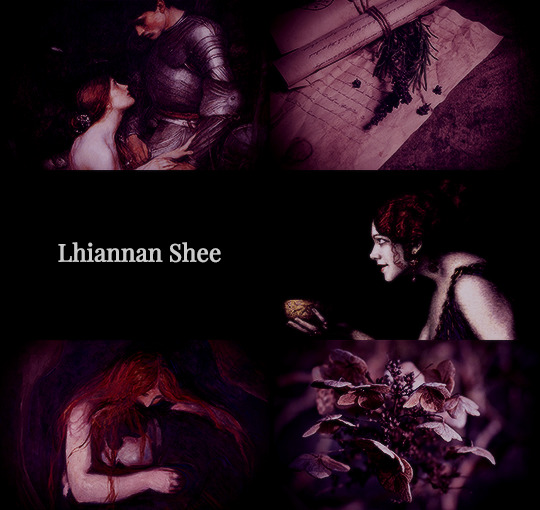


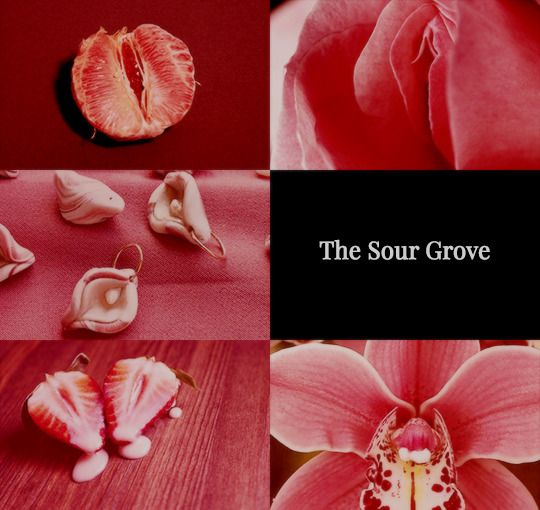


Favorite Songs || Mediæval Bæbes, part II
L’Amour de Moi
The love of me has enclosed itself inside a pretty garden/ Where the rose and Lily of the Valley believe / There also makes the passerose ... Helas, there is not such a sweet thing than this sweet Nightingale/ Who sings in the evening/ and in the morning when he is tired he rests.
Desert Rose
When the desert sand blows softly to the end/ And the winter nights bring maidens to despair/ When the sky is black and moon is full and round/ Then you’ll hear her cry and hear her soul abound...
Erthe Upon Erthe
Earth conquers castles and towers on earth/ Then says earth to the earth, “All of this belongs to us.”/ When earth has built up his defenses on earth/ That is when earth will get his comeuppance from earth/ Remember, o man, that you are ashes/ And to ashes you will return...
Kilmeny
Kilmeny had been where the cock never crew/Where the rain never fell, and the wind never blew/ But it seemed as the harp of the sky had rung/ And the airs of heaven played round her tongue/ When she spoke of the lovely forms she had seen/ And a land where sin had never been/ A land of love and a land of light/ Withouten sun, or moon, or night.
Lhiannan Shee
O Fairy Sweetheart, I hear you calling/ At dawn and dusk in the lonely ways/ Your kiss has lured me from mortal women/ Alone I wander through all my days.
Mad Song
So wild winds weep and the night is so cold/ come-hither sleep; let my griefs enfold thee/ morning peeps over the eastern steeps/ and the rustling birds of dawn the earth they do scorn.
Queen of Heaven
O Queen of heaven, rejoice, Alleluia/ For He whom thou didst deserve to bear, Alleluia/ Is risen again as He said, Alleluia/ Pray for us to God, Alleluia.
The Sour Grove
Let songs to the quim grow and thrive/ Find their due reward and survive/ For it is silky soft, the sultan of an ode/ A little seam, a curtain, on a niche bestowed/ Neat flaps in a place of meeting/ The sour grove, circle of greeting.
Temptasyon
Give us this day our daily bread/ and forgive us our trespasses/ as we forgive those who trespass against us/ and lead us not into temptation/ but deliver us from evil.
The Woods and the Rivers Are Silent
The woods and rivers are silent/ It is the sea without wave lies/ In the caves the winds have respite and peace/ And in the dark night, high silence for the white moon.
#mediaeval baebes#early music#katharine blake#medieval music#early modern music#music#favorite song picspams#nanshe's graphics
4 notes
·
View notes
Text
youtube
0 notes
Text
Orbital - Ringa Ringa (The Old Pandemic Folk Song) (feat. The Mediaeval Baebes) [Official Video]
youtube
#ringa ringa (the old pandemic folk song)#orbital#paul hartnoll#phil hartnoll#mediaeval baebes#katharine blake#bev lee harling#emily ovenden#melpomeni#esther dee#sarah kayte foster#ring o'roses#trad arr orbital#techno#techno folk#2022#optical delusion#2023#Youtube
0 notes
Text
I just realised that Katharine thought Half Moon was always so easy to maneuver through the woods because he was the best horse on the island but it was actually because she could control him very well with her naturalist tendencies that she knew nothing about.
60 notes
·
View notes
Text

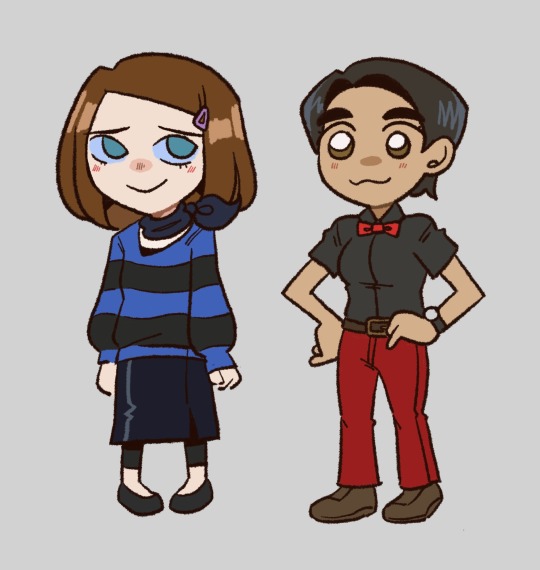
gluri
#glee yuri#my art#glee#sebastian smythe#kurt hummel#blaine anderson#i based sebs design off blake lively bc i realized she kinda looks like grant gustin lol#i feel like if kurt and blaine were girls their gender presentation(s) wouldnt be too far off#from their canon ones (<- butch blaine truther#but for sebastians i think itd be different considering the circumstances#also i like keeping girl sebastians name as sebastian because i do picture her as a girl whose parents wanted a boy#LOL#also blaine is already a girl name so thats not changing either#kurt->kate but its short for katherine.. i imagine her being named after katharine hepburn and/or the wuthering heights character#genderbend
40 notes
·
View notes
Text
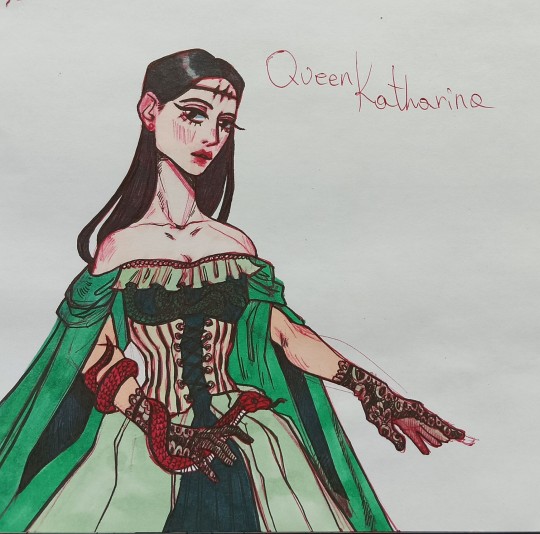
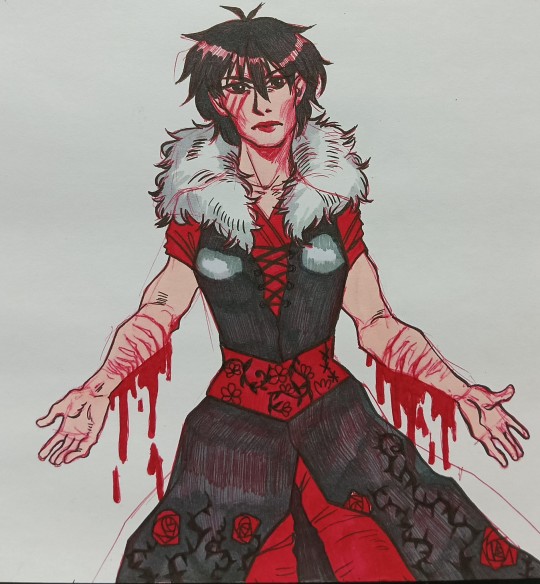

Small sketches in color with Queens
1. I think that Katharina would suit green, fluffy dresses and elbow-length lace gloves
2. I imagine Arsinoe in something red (given her blood magic), with fur, and not too feminine
3. Maybe this is too revealing a dress for Mirabella(?)
But it seems to me that after all the black clothes she has been dressing in almost all her life, she would like to wear something bright and with patterns
#my art#fan art#traditional art#book fan art#kendare blake#three dark crowns#one dark throne#two dark reigns#five dark fates#queen katharine#queen arsinoe#queen mirabella
14 notes
·
View notes
Text
so the terf wizard books get a tv show even though the movies are barely over a decade old but we still don’t have a three dark crowns series? what kind of fuckery is this?
#arsinoe could take hp's bitchass in a fight#my golden trio is jules arsinoe and billy tyvm#three dark crowns#five dark fates#one dark throne#two dark reigns#kendare blake#queen arsinoe#queen katharine#queen mirabella#jules milone
67 notes
·
View notes
Text
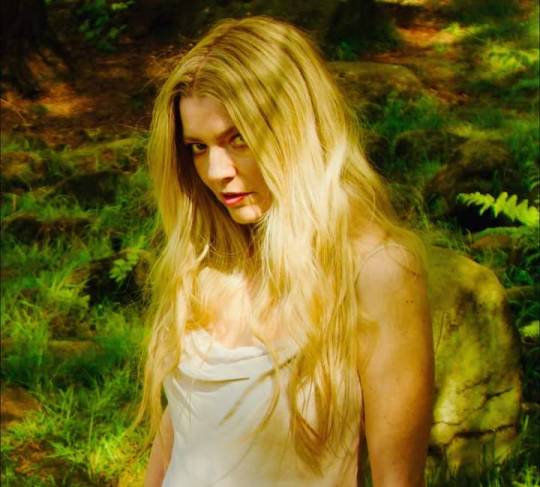
The Witching Tale
3 notes
·
View notes
Text


Katharine Blake of Miranda Sex Garden
#katharine blake#miranda sex garden#posting these too bc it's been in my drafts for so long#everyone look at katharine#and listen to fairytales of slavery sound of the summer
34 notes
·
View notes
Link
In the late 1980s and early 1990s fanvids were made by editing video cassette tape footage together on two VCRs. These vids do not use fast cuts or special effects due to the limited tech at the time. Because they have been converted from tape, there will be audio and video artifacts. But they offer a glimpse back in time into Blake’s 7fandom prior to the advent of the Internet.
There are het relationship vids, character studies of Avon, Vila, Servalan, Cally and Tarrant and a rousing tribute to the women of Blake’s 7. These vids have been posted with the permission of Katharine's friends after Katharine passed in March 2022.
19 notes
·
View notes
